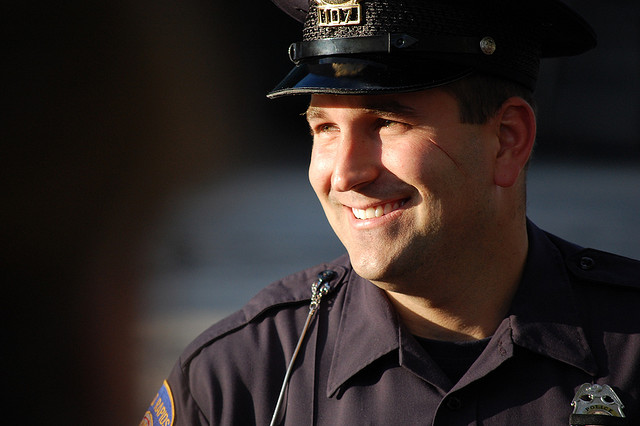
By Andrew Johnson
For the past three months, pundits on television and uncles on Facebook alike kept repeating their speculations about Michael Brown until it became the dominant narrative among White America: Surely this kid was a criminal, a thug. He must have done something wrong to be killed by police. There must be an explanation.
Monday night, St. Louis County Prosecuting Attorney Robert McCulloch gave a presentation on his grand jury’s “objective and scientific” investigation and continued with this narrative: Officer Wilson stopped Michael Brown in the street because he could see that Brown was indeed carrying the Swisher Sweets cigars reportedly stolen from a nearby convenience store. As it turns out, according to McCulloch, Brown was not the “giant teddy bear” his mother spoke of. He was a criminal, a thief, a thug. Sigh of relief. Now we can more easily rationalize Wilson’s claim of self-defense, knowing that he was confronting not a child but a thief.
I have no idea what it is like to be a young black man in America right now. Instead I understand all too well the deep-abiding belief that the system of justice works for me, an awareness of impunity awarded me by a lifetime of privilege.
I stole when I was a teenager. A lot. My friends and I would gather at someone’s house on a Friday night, wait until after midnight, then drive around south Kansas City stealing yard gnomes from front yards, flags from apartment complexes, street signs and construction cones, anything we could take and load into our cars. We destroyed or stole private property. Then we would dump all of it in the front yard of one of the girls we liked. We did this often.
It was a joke, a prank. Actions that people are quick to label “thuggish” were instead categorized as innocent fun, because the packaging was different: we were half a dozen white teenage boys, borrowing our moms’ minivans and driving pre-dawn all over our quiet suburban streets. And we were the “good kids,” all college-bound, the ones who didn’t drink or do drugs. Just out for a good time. What could go wrong?
I don’t recall that question ever actually crossing my mind. I don’t remember thinking of our mischief as crime, or worrying that I was putting anyone’s life at risk, including my own. Other than potentially pissing off the girls we were trying to impress—or worse, their fathers—I didn’t worry about the consequences of my actions.
Wilson’s badge is a sign of his commitment to protect and to serve, but it is also a sign of his own protection by a system that rarely indicts police officers.
We got caught by the police twice. The officers did not treat us like criminals. Not like the thieves we were, if I’m being honest. We were never arrested. They didn’t write tickets. They treated us, instead, like kids. They made us load it all back into our cars, then they escorted us as we tried to remember where everything came from. Once we had to apologize to an elderly lady for breaking the head off her deer statue. We never feared for our lives. They didn’t even call our moms. I remember the officers grinning.
I have no idea what it is like to be a young black man in America right now. But I do know that I can look at what happened to Michael Brown in Ferguson, compare it to my own experience, and seek to understand the difference. One glaring difference is that I was given the benefit of the doubt. I’ve always been given the benefit of the doubt, even when I have clearly broken the law. This is a significant disparity between the consequence I faced as a teenage thief, and the corporal consequence Brown faced on his way home that day.
I wish I could understand more of what it means to be black in America, but common ground has its limitations. Instead I understand all too well the deep-abiding belief that the system of justice works for me, an awareness of impunity awarded me by a lifetime of privilege. Wilson’s badge is a sign of his commitment to protect and to serve, but it is also a sign of his own protection by a system that rarely indicts police officers. I don’t know what was going through Wilson’s mind in those final moments with Brown, but we know he made the deliberate decision not to simply disable Michael Brown, but to aim his gun instead at Brown’s chest, go for the kill, and pull the trigger, then again, and again, again, again, again, again, again, again, again, again, and again. That is what faith in our system of justice looks like.
Yet it seems we are impossibly far from the day when someone like Officer Wilson might give someone like Michael Brown the benefit of the doubt, treat him like a child, walk him back to the convenience store to apologize, and maybe even call his mom.
Andrew Johnson’s work has appeared in Crazyhorse, Killing the Buddha, Green Mountains Review, MAKE, Sonora Review, and elsewhere. He lives in Kansas City, Missouri, where he is the director of Pilgrim Center for the Arts.
